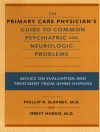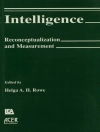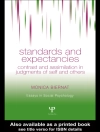Application of scientific findings to effective practice and informed policymaking is an aspiration for much research in the biomedical, behavioural, and developmental sciences. But too often translations of science to practice are conceptually narrow, ethically underspecified, and developed quickly as salves to an urgent problem. For developmental science, widely implemented parenting interventions are prime examples of technical translations from knowledge about the causes of children’s mental distress. Aiming to support family relationships and facilitate adaptive child development, these programmes are rushed through when the scientific findings on which they are based remain contested and without ethical grounding of their aims.
In Matters of Significance, Marinus van IJzendoorn and Marian Bakermans-Kranenburg draw on 40 years of experience with theoretical, empirical, meta-analytic, and translational work in child development research to highlight the complex relations between replication, translation, and academic freedom. They argue that challenging fake facts promulgated by under-replicated and under-powered studies is a critical type of translation beyond technical applications. Such challenges can, in the highlighted field of attachment and emotion regulation research, bust popular myths about the decisive role of genes, hormones, or the brain on parenting and child development, with a balancing impact for practice and policymaking. The authors argue that academic freedom from interference by pressure groups, stakeholders, funders, or university administrators in the core stages of research is a necessary but besieged condition for adversarial research and myth busting.
Praise for Matters of Significance
‘This thoughtful volume is an accessible overview of the authors’ field-shaping collaborative research on attachment and an indispensable primer on differentiating between sense and nonsense in the service of producing cumulative developmental science and ethically translating its core insights.’
Glenn I. Roisman, University of Minnesota
‘The truly original arguments presented in Matters of Significance go beyond attachment, as they concern the nature of developmental science and its relation to ethical, cultural, legal, and political issues.’
Jay Belsky, University of California, Davis
Tabla de materias
List of figures
List of tables
Preface
Acknowledgements
Introduction: attachment theory in a nutshell
Part 1: The replication crisis and its remedies
1 Power failure in developmental research
2 A moratorium of self-reports
3 Meta-analyses searching for replicated evidence
Part 2: Translation to policy or practice
4 Video-feedback intervention (VIPP-SD) promotes sensitive parenting and secure attachment
5 Institutionalised child-rearing is structural neglect
6 Future generations can be saved from genocidal trauma: the case of the Holocaust
7 Jumping from ‘is’ to ‘ought’?
8 Dubious effect size standards and cost-effectiveness criteria
Part 3: Busting myths is translation
9 It’s all in the genome?
10 Attachment and parenting in the brain and hormones?
11 Is attachment culture specific?
12 Parenting shapes prosocial child development?
13 Is assessing attachment of individual children in applied practice valid?
14 SOS Children’s Villages in the best interest of children?
15 Is adoption a modern, unethical in(ter)vention?
Part 4: Protecting academic freedom promotes replication and translation
16 Limits to participant, public, and policymaker involvement
17 Caution: personal conflicts of interest
18 Academic freedom in ‘safe spaces’
Epilogue: replication, translation, and academic freedom
Index
Sobre el autor
Marian Bakermans-Kranenburg is Professor of Child and Family Studies at the Institute of Psychological, Social and Life Sciences, Lisbon, Portugal.












